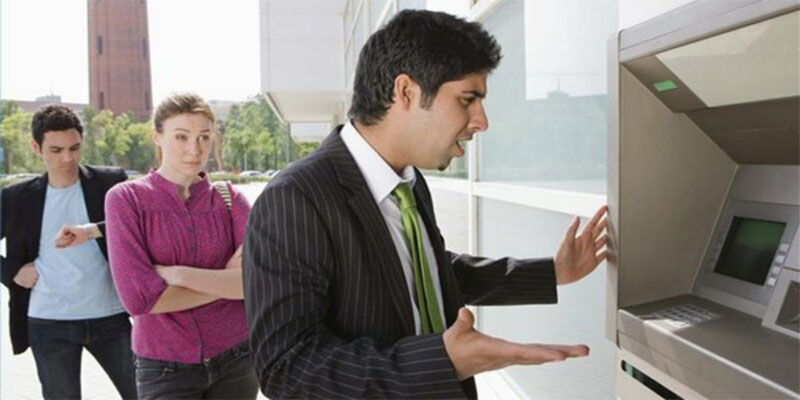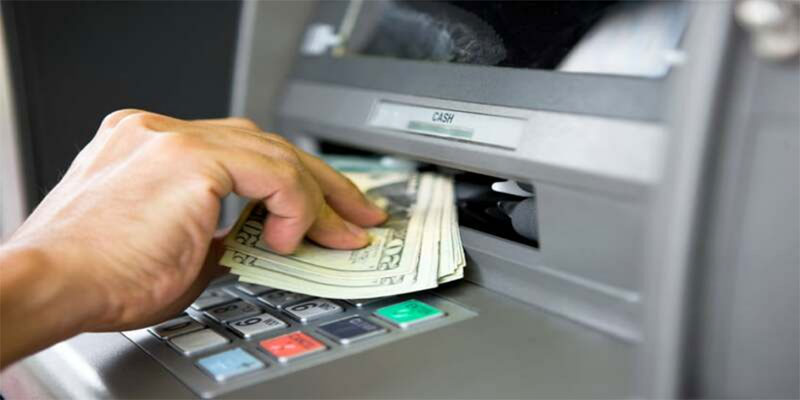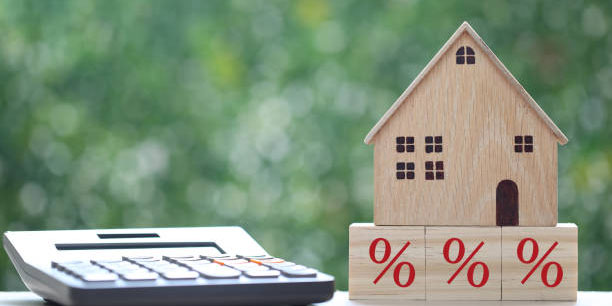what to do if an atm eats your deposit It's easy to feel helpless and hopeless when faced with an ATM that has simply run out of cash deposits without crediting your account or providing a receipt. You need to ask Linda Murray Bullard, who experienced something similar not too long ago. Murray Bullard, the owner of a business consulting company in Chattanooga, Tennessee, calls it "a dreadful experience." There is no way to know how typical her story is. Michael Lee, CEO of the ATM Industry Association, claims that his organization has "not heard of a single documented incidence of this occurring," suggesting a lack of data showing the magnitude of the problem. In response to inquiries regarding similar occurrences, the American Bankers Association had no comment. It's safe to say that Murray Bullard isn't alone: Countless internet forum threads on the subject show that cash-hungry ATMs aren't as rare as you think.
Possible ATM Mistakes If An ATM Eats Your Money

While ATM malfunctions aren't common, they may be inconvenient if they require you to wait for your bank to update your account balance. Possible problems include the following:
- Whenever you deposit, say, $400, however, the ATM only recognizes $300. This is known as a "counting error."
- If you think you read it incorrectly, please verify. If the ATM's OCR fails to interpret your check properly, you might accidentally deposit too little money.
- Power failure: If a power failure or other technical malfunction happens during your transaction, your funds may not post to your account or vanish entirely.
- Excess an excessive amount: You could feel fortunate if the ATM hands you an additional $20, but if you don't report the error to the bank, you might end yourself in legal hot water.
How To Respond To An ATM Error If An ATM Eats Your Money
To avoid financial loss and legal issues in the event of a mistake, remember to take the following precautions:
- Make as many notes as you can. Take a picture of the screen with your phone and hang on to any deposit slips you get (assuming you haven't already left). Immediately take a snapshot of your banking app if it displays incorrect data. If there are numerous ATMs in the same area, you must keep track of which one you use.
- Get in touch with the financial institution or ATM provider. Leave a phone or send an email to the bank, even if it's after hours, to show that you've made an effort to resolve the situation as soon as feasible.
- Watch as the bank conducts its probe: The bank has ten days to look into an ATM malfunction under the Electronic Funds Transfer Act. If the bank is prepared to credit your account with the amount you claim is right throughout the investigation period (which might be up to 45 days), the investigation time frame could be extended. They must provide you with a written report of their findings during the investigation.
- Submit a grievance to the Federal Trade Commission (CFPB). If you've lost money throughout an ATM transaction and have exhausted all other options, registering a complaint with the Consumer Financial Protection Bureau (CFPB) may be your best bet for getting the agency that is supposed to protect your interests involved in the case.
If An ATM Consumes Your Deposit, Contact Your Bank Immediately.

Do not choose to forget what has occurred. It would be best if you made urgent contact with your bank. If this occurs to you at an ATM belonging to your bank, you must go inside and explain the situation. If this happens to you, don't worry; visit your bank branch, and they will be able to make the necessary adjustments and get you a printed receipt to prove the deposit was made. That's the most straightforward answer. What if you are utilizing an independent ATM rather than one located in your bank's branch? What if you deposit an ATM that isn't affiliated with your bank and disappear without a trace? Unfortunately, this keeps happening, but please don't lose your cool. Contacting your bank as soon as possible is necessary. Call the bank using the number on the back of your debit card and explain the problem to a customer care agent.
Conclusion
You should take as many notes as possible, call the bank and ATM operator immediately, and consider filing a complaint with the Bureau of Consumer Protection if you have any problems getting your money back if the ATM makes a mistake or miscalculates your deposit or withdrawal. Money may be deposited and withdrawn from an ATM while the bank is closed. However, fixing an issue while someone else is there to assist might be difficult. The following are some of the most common ATM malfunctions, along with instructions for correcting them. Following these procedures, you can protect your finances and keep yourself out of legal trouble.



